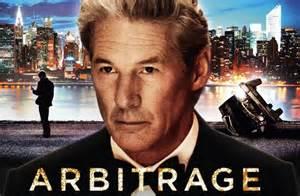
In theory there’s no difference between theory and practice, but in practice there is. –Yogi Berra
作为主动型的价值投资者,我们不断地在寻找市场中定价错误的机会,也就是说我们相信市场并不总是有效的。
Howard Marks 在“投资最重要的事”(The Most Important Thing Illuminated)一书中对此有一些很精辟的讨论。原文和翻译如下:
Second- level thinkers know that, to achieve superior results, they have to have an edge in either information or analysis, or both. They are on the alert for instances of misperception.
第二层次的思考者知道,为了取得超额回报,他们必须具备信息优势或者分析优势或者两者兼备。他们时刻关注着市场可能发生错误的机会。
Inefficient markets do not necessarily give their participants generous returns. Rather, it’s my view that they provide the raw material— mispricings—that can allow some people to win and others to lose on the basis of differential skill. If prices can be very wrong, that means it’s possible to find bargains or overpay. For every person who gets a good buy in an inefficient market, someone else sells too cheap. One of the great sayings about poker is that “in every game there’s a fish. If you’ve played for 45 minutes and haven’t figured out who the fish is, then it’s you.” The same is certainly true of inefficient market investing.
无效市场并不一定会给参与者带来丰厚的回报。我反而觉得市场的错误定价只是给不同能力的投资者提供了获利或损失的基础。如果价格是失灵的,那么意味着你可能会找到便宜货或者付出过高的价格。每一个在无效市场中买到便宜货的交易者的反面是另一个卖得太便宜的交易者。在扑克中有一句老话“在每一场比赛中都有一条傻鱼。如果你玩儿了45分钟还没有发现谁是傻鱼,那很可能你就是那条傻鱼。”这同样适用于在无效市场中的投资。
That alone is not a sufficient condition for outperformance. All that means is that prices aren’t always fair and mistakes are occurring: some assets are priced too low and some too high. You still have to be more insightful than others in order to regularly buy more of the former than the latter. Many of the best bargains at any point in time are found among the things other investors can’t or won’t do. Let others believe markets can never be beat. Abstention on the part of those who won’t venture in creates opportunities for those who will.
(无效市场)并不是卓越回报的充分条件。这只是说明价格并不总是合理的,错误定价是会出现的:有些资产定价过低或者过高。你需要比其他人更有深刻的洞察力,才能持续买入前者而不是后者。许多曾经一度价格特别低廉的便宜好货是因为其他投资者不能或者不肯买入出现的。让别人相信市场无法战胜吧—正是因为他们的弃权,给其他人造就了绝好的机会。
The key turning point in my investment management career came when I concluded that because the notion of market efficiency has relevance, I should limit my efforts to relatively inefficient markets where hard work and skill would pay off best. Theory informed that decision and prevented me from wasting my time in the mainstream markets, but it took an understanding of the limits of the theory to keep me from completely accepting the arguments against active management.
在我的投资管理生涯中一个关键的转折点是当我意识到有效市场理论有其适用性,所以我应该把精力限制在相对无效的市场区域,这样我的勤奋和技能才能带来最大的回报。(有效市场)理论告诉我不要在主流市场中浪费时间。但是正是因为意识到(有效市场)理论的局限性才让我仍然在一定程度上相信“主动管理”的有效性。
作为价值投资者,我们寻找市场失效带来的机会。当然最理想的是我们心仪已久的好公司的买入机会,有时候市场也会提供一些套利(arbitrage)的机会。传统意义上的套利是同时在不同市场买入和卖出同样的证券或者金融产品。其目的就是为了获得价差带来的盈利空间。现在很多套利机会往往出现在一些企业发生重大改变时—兼并收购,重组,分拆,清算等。巴菲特在早年间曾经做过不少的套利。他老人家在1988年和1989年的致股东信中曾经详细讲过几个案例。
首先,巴菲特是怎么看待套利的呢?“Our insurance subsidiaries sometimes engage in arbitrage as an alternative to holding short-term cash equivalent. We prefer, of source, to make major long-term commitment, but we often have more cash than good ideas. At such times, arbitrage sometimes promises much greater returns than treasury bills and, equally important, cools any temptation we may have to relax our standards for long-term investments.” 他说得很清楚,巴菲特更喜欢好的长期投资机会。但是因为Berkshire公司里常常有多余的现金,所以他也参与一些套利来作为短期现金管理的工具,因为套利往往会提供比国债高得多的回报,而且也防止他经不住诱惑放松长期投资的标准。巴菲特是把套利当作一个短期现金的替代物看待的。
其次,巴菲特是如何评估套利机会的呢?“To evaluate arbitrage situations you must answer four questions: (1) How likely is it that the promised event will indeed occur? (2) How long will your money be tied up? (3) What chance is there that something still better will transpire – a competing takeover bid, for example? And (4) What will happen if the event does not take place because of anti-trust action, financing glitches, etc.?” 要评估套利的形势,你必须回答四个问题: (1)宣布(指望发生的)事件实际发生的可能性有多大?(2)你的资金会被占用多久?(3)有多大可能更好的结果会出现—比如另外一个收购出价?(4)如果你所期望的事件没有发生,会有什么结果?比如因为反垄断或者融资出现问题。
巴菲特也谈到他们做套利的几个原则:
· “First, we participate in only a few, and usually very large transactions each year.” 首先,我们每年只参与几个通常很大的交易。这个是由巴菲特的资金量和投资侧重点决定的。
· “The other way we differ from some arbitrage operations is that we participate only in transactions that have been publicly announced. We do not trade on rumors or try to guess takeover candidates. We just read the newspapers, think about a few of the big propositions, and go by our own sense of probabilities.” 另外一点我们与其他套利行为不同的是我们只参与公开宣布过的交易。我们不会根据谣言做交易,也不会试图去猜测被收购对象。我们只是读新闻,考虑一些大的(收购)提议,根据我们对概率的判断做决定。这一点其实是很值得我们思考。巴菲特这么说其实不仅是基于道德或法律准则,更是从商业判断上出发。首先,未经宣布的收购要约达成的概率要小很多,谈判过程中出现的各种状况都会造成交易的失败。从这一点上说,宣布的交易达成的可能性要大很多。其二,公开的要约才能有具体的条款供套利投资人计算风险和收益的概率。对于巴菲特而言,套利不是投机,是否套利是基于条件概率的判断。
巴菲特对套利的准则看似简单,其实非常精明。这与他基于价值的投资理念一脉相承—只在胜算很大的时候才出手,看准了下重注。因为市场失效的时间不常见,好的机会也不会持续很久。
也许以后我们可以找时间聊聊一些具体的套利案例。
0
推荐




 京公网安备 11010502034662号
京公网安备 11010502034662号 